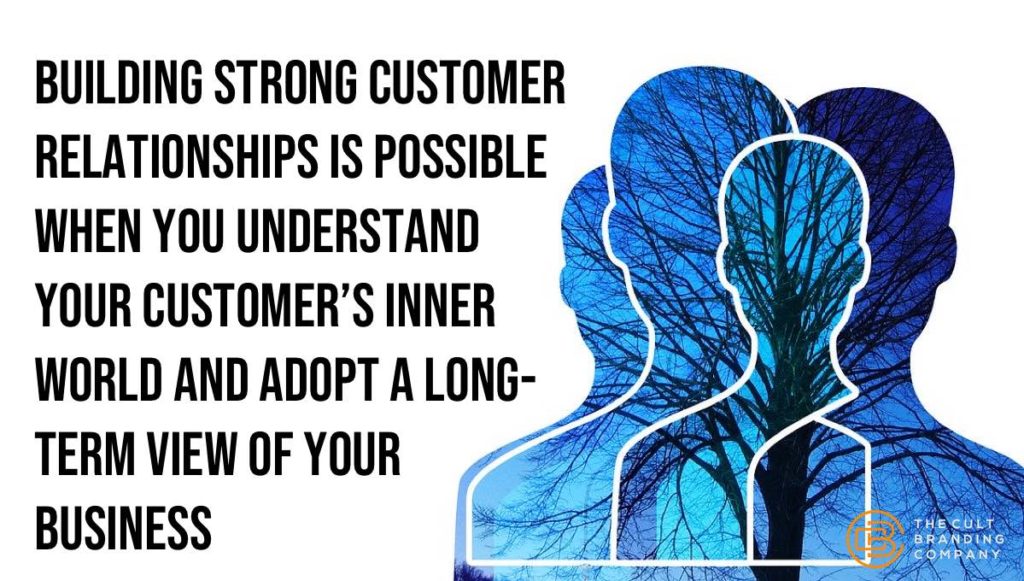[ad_1]

Businesses that succeed in the long-term have leaders with a long-term perspective. They have an inspired vision. They can see the latent potential in their people and within the enterprise itself.
The customer is vital to the actualization of this vision. Ideally, the customer is at the heart of it.
Adopting a long-term business outlook enables leaders to let go of the short-term transactional mindset in favor of a more profitable relational perspective.
Relating to your customers is a lot like relating to a partner, friend, family member, or colleague.
To relate requires interest in the other person. It requires us to let go of our preconceived notions and to listen carefully and observe.
Are you curious about who your customers really are?
Seven Questions to Discover Customer Insights
Your customers relate to your business based on subconscious and unconscious processes. This means that you can’t simply ask them to tell you about themselves (although that’s certainly a good start).
Instead, if you want to better understand them, you need to probe deeper. You need to take a brief voyage into your customers’ inner worlds.
Here are seven questions to reflect on as you walk the heroic path of forging meaningful relationships with your customers.
1) What are the primary tensions your customers face?
Your customers interact with your business because they are trying to resolve a specific tension or a set of tensions. Defining this tension is vital if you want to serve them better than anyone else.
2) Who are your customers trying to become?
This is linked to the first question. Every great story tells a hero’s journey. At the heart of each journey is a core tension that is seeking resolution. Knowing your customers’ dreams and aspirations can enable you to play an irreplaceable role on their journey to personal transformation.
3) What are the primary emotions your customers are seeking to experience?
Your customers make decisions from their feelings, not their thoughts. When you know your customer’s target emotions, you can find ways to evoke them through positive experiences with your brand.
4) What needs are your customers trying to meet?
Your customers are biological creatures driven by basic human needs as well as spiritual beings guided by higher-level needs. If you’re taking a long-term business outlook, be sure that you’re helping your customers meet both types of needs.
5) What are the archetypes—patterns of behavior—that govern your customers’ lives?
Archetypes are universal mental images within the human psyche. These primordial images trigger instinctual urges that lead to set patterns of behavior. When you know the predominant archetypal patterns of your customers (and your brand), you will have a deeper understanding of what motivates them to take action.
6) What are the common characteristics your customers share?
Your customers, especially your best ones, likely share a core set of personality traits and characteristics that help shape and define their personal identities. Knowing these shared traits enables you to market to them in meaningful ways.
7) What drives your customers to choose you?
Your customers choose you over your competitors for both rational and irrational reasons. When you know what drives your customer’s choice, you know what’s most important to them. This insight is vital if you want to discover ways of becoming irreplaceable in your customers’ minds.
Forging Long-Term Customer Loyalty
Building strong customer relationships is possible when you understand your customer’s inner world and adopt a long-term view of your business. Then, you can translate these customer insights into strategies to better serve them.
These questions obviously go significantly deeper than your average consumer metrics and demographic information.
As a business leader, asking these questions (even in a purely contemplative way) demonstrates a new level of commitment to serving your customers.
Answering these questions requires genuine interest, curiosity, patience, and a little cunning.
[ad_2]
Source link






